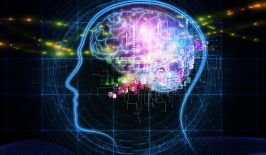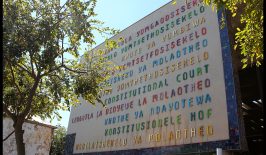Omdena is an innovation platform where AI experts from around the world collaborate on building solutions for positive impact. RESET chatted to its Head of Marketing, Michael Burkhardt.
Omdena is a Silicon Valley-based social enterprise, founded in 2019, that applies artificial intelligence to help solve real-world problems. On the company’s website, you can see the diverse list of projects they’ve worked on so far: from identifying bodies of water that breed malaria-carrying mosquitoes to predicting climate change-related conflicts in Somalia by correlating vegetation health and migration patterns.
The company sources projects and collaborators through their online platform, with experts in data science, engineering, and research also welcome to sign up to be part of a pool of potential collaborators. Organisations that work on social impact are invited to submit their ideas, problems, and use cases on the website. Then, Omdena selects a group of up to 50-60 team members from all around the world with technical and also non-technical backgrounds to collaborate and build solutions to the problems. Projects selected to be worked on by Omdena are either done pro-bono, funded by the organisation itself, or by an external funding partner.
Many of Omdena’s projects are carried out in countries in the Global South where there is a lack of “on the ground” data. In these cases, satellite imagery has proven to be a fast, straightforward way to get access to information. For example, in Nigeria, Omdena used satellite imagery to work out which areas lacked electricity. Then they checked out the physical characteristics of the settlements to see if they would be good sites for installing solar panels.
Michael Burkhardt, Head of Marketing at Omdena told RESET:
“We bring in this collaborative power, this team of engineers from all around the world who have a shared purpose and resonate with the problem that they want to solve. For us it’s all about building ethical solutions and we connect ethics to diversity. We know that only through having different perspectives can you come up with ideas of how to connect and prepare data and what kind of approaches can solve the problem.”
Their commitment to diversity shows: they have 35% representation of women in their projects (which is way above the AI data science average) and 83 countries are represented. “Our mission is to democratise AI and bring AI to organisations that need it,” Michael explained. They work with NGOs – including UNHCR, WRI, and WFP – startups, SMEs, and corporations too – provided the project is designed to produce social impact.
In an ideal world, AI problem solvers would be presented with a narrowly-defined problem, a perfect dataset and AI technology to be leveraged. Then their only task would be to build a high performing dataset. However, this isn’t how real-world problems work. As Michael explains: “Many of our projects started with a vaguely- or ill-defined problem and messy data or no data.” When Omdena collaborators join the project from diverse perspectives, this helps organisations think through whether the problem makes sense in an AI context, how it can be narrowed down, which data is available and what techniques can be applied to improve the quality of the data. The Omdena team then develops a methodology and divides into multiple task force teams to experiment with solutions. Within 8 weeks the teams always come up with a solution, whether it’s a production-level AI solution that can be implemented immediately, a prototype, or at least a workable, augmented dataset.
AI Solutions for the Here and Now
AI technology is advancing quickly, so Omdena takes advantage of all of the existing tools and new technologies emerging, such as transfer learning. However, they try to stay away from the hype around cutting edge research breakthroughs, which are often early-stage research projects that won’t produce use cases for several more years. “We use what is necessary, which means that we are not going to look into sophisticated and fancy algorithms that do not create any value. We leverage everything that is available, but we focus on making things work and what we can solve right now in this moment.”
Figuring out which problems can actually be solved by AI is part of the Omdena process. For example, at the onset of Covid-19, there was a lot of conversation around how AI could be used to come up with solutions to the challenges posed by the pandemic: through vaccine development, managing healthcare services, and data analysis for public policy decisions. Michael argues that applying AI to a problem at such a large scale is practically impossible, but one can look at much smaller problems related to the pandemic and leverage AI to solve them. For example, Omdena recently ran a Covid-related project that used data to explore the effects of lockdown policies on vulnerable populations, including how lockdown policies affected employment rates, the informal economy, domestic violence, and healthcare access for elderly populations.
If you want to know more about Omdena’s work you can attend one of the upcoming ‘Demo Days‘ that they regularly host online in order to exhibit and discuss their ongoing projects.





